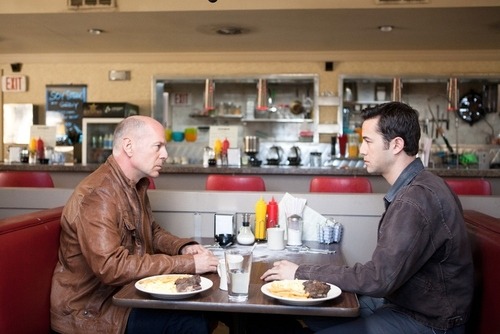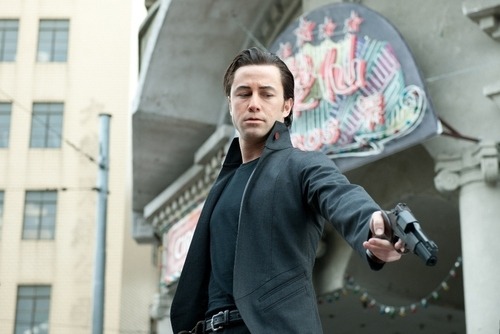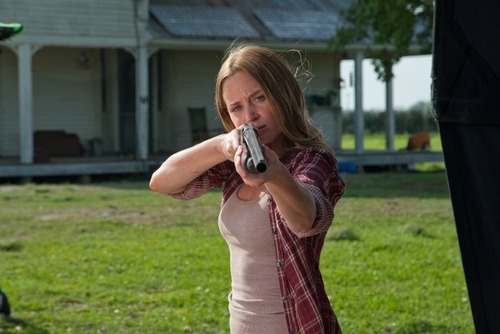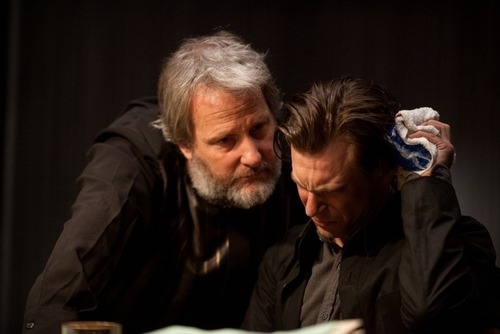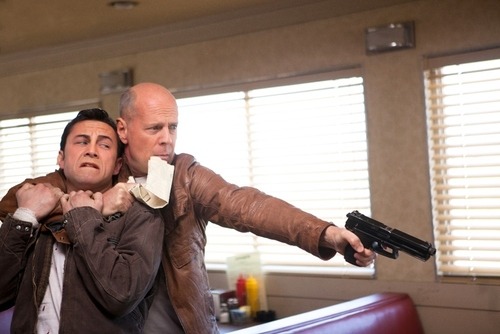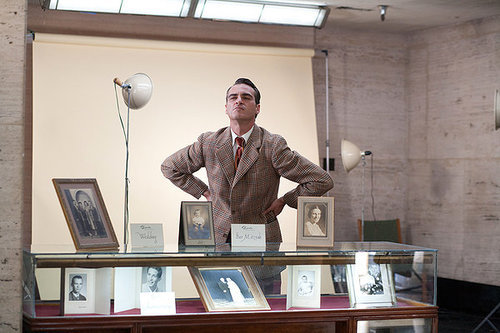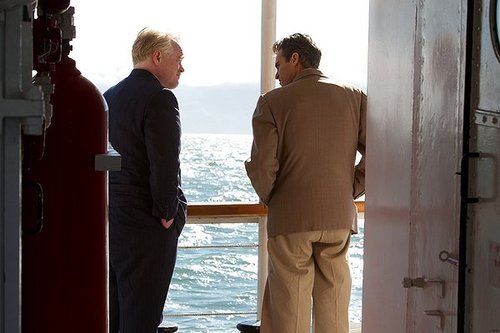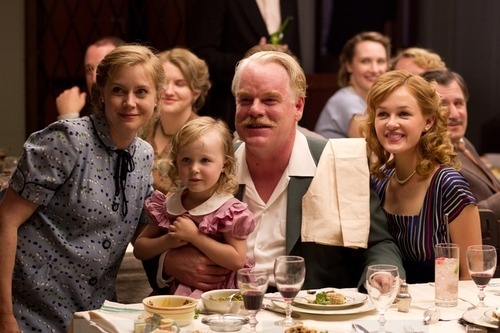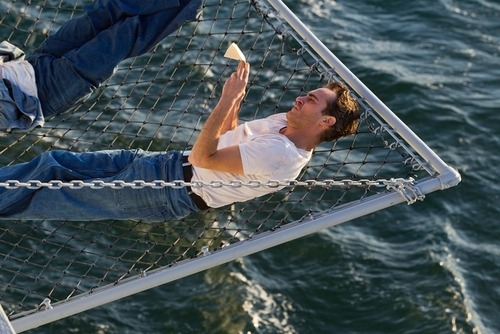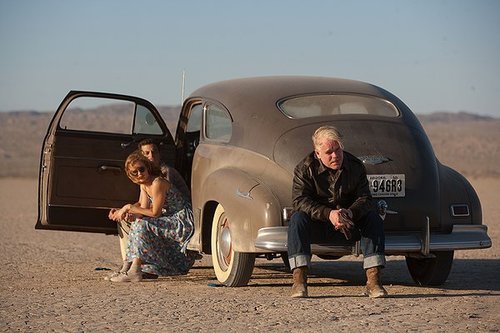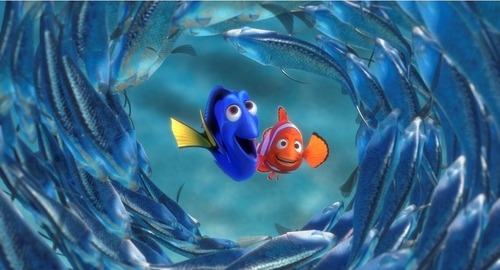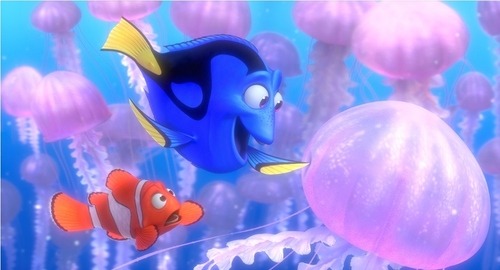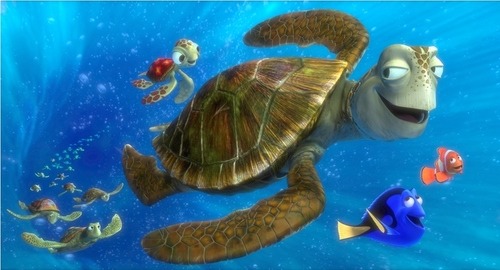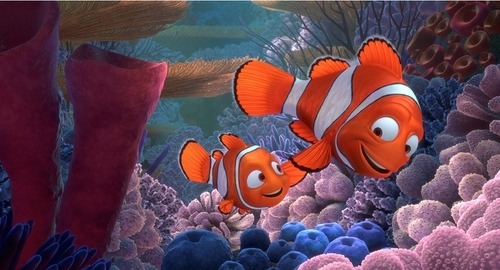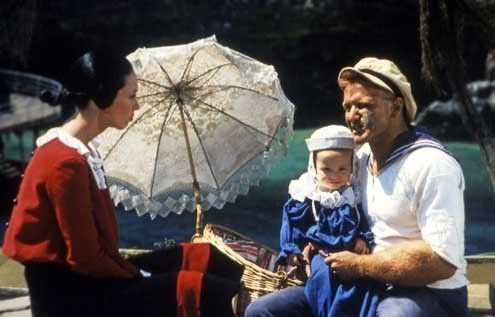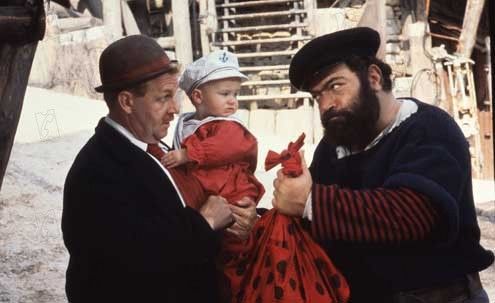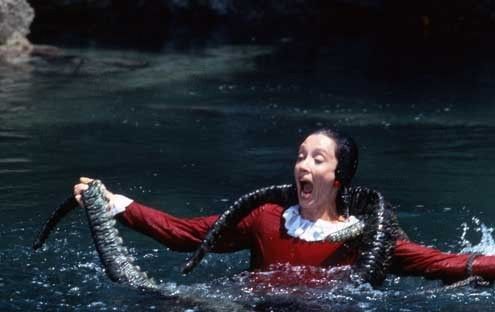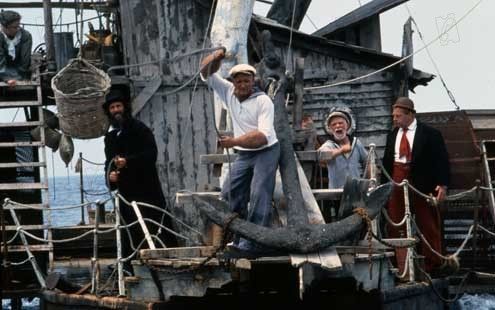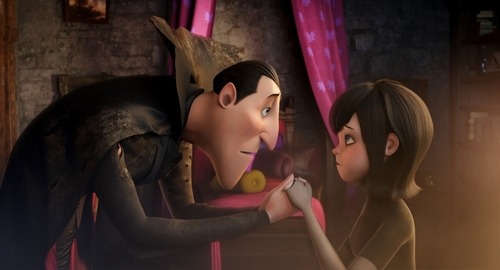
"Wooden stake through the heart?" "Yeah, but who wouldn't that kill?"
In my review of ParaNorman, I pointed out how the top notch work from Pixar, Studio Ghibli, Dreamworks (in the last four years) & Laika studios has us in a bit of an animation renaissance. Sadly, Sony Pictures Animation has just two homegrown feature films under its belt, and hasn't done much to contribute to this overall golden age. Their first effort was 2009's Cloudy with a Chance of Meatballs, which was charming enough, but not terribly substantive. Sadly, that film looks like a masterpiece next to their most recent effort, Hotel Transylvania.

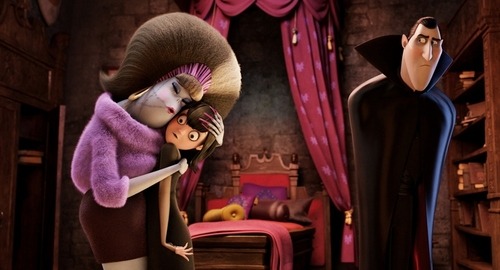
Hotel Transylvania tells the tale of Dracula (Adam Sandler) as an overprotective dad to his daughter Mavis (Selena Gomez). After the tragic death of his wife, Dracula promises to keep Mavis from the outside world which would shun and harm her, so he builds a retreat for monsters deep in a Transylvanian forest. It is the only place on earth where monsters can let their hair down and be who they are, without fear of intervention from the outside world. And all the heavy hitters from Frankenstein (Kevin James) to The Wolfman (Steve Buscemi) have gathered at the hotel for Mavis' 118th birthday.
The unthinkable happens, however, when an unsuspecting human named Jonny (Andy Samberg) finds the castle on a hiking trip. Dracula first tries to get rid of the human, then tries to disguise him as a fellow monster, but all hell really breaks loose when Jonny & Mavis fall for one another. Will Dracula ever let down his guard enough to trust a human? Will the divide between the monster world and the human world be too much for their love to survive? Can you keep from rolling your eyes and the non-stop cheap and easy humor that portends to substitute itself for actual entertainment?
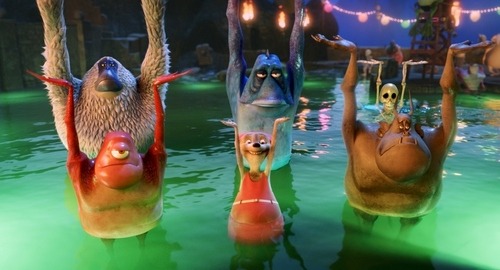
Despite its advertising campaign, I actually held out some hope that this film might actually be a worthwhile diversion, considering it was the feature directing debut of Samurai Jack & Dexter's Laboratory creator Genndy Tartakovsky. What I only found out after seeing the film is that Tartakovsky is the sixth director that this film went through in its development, meaning that it was in pretty dire straits before he came on board. The script also has no fewer than six credited writers, so it appears as if this was a film made by committee rather than actual filmmakers.
Sandler and his stable of Happy Madison cohorts (James, Buscemi, David Spade, Jon Lovitz) voice virtually every character, so if you're not a fan of their brand of sophomoric humor, chances are this film will do little to win you over to their cause. Just when you thought Sandler couldn't get any lazier, he stumbles into the domain of lazy acting: voice-over work. It's a shame too, because he was someone that I admired for a long time, but it's been over a decade since he's produced a comedy worth laughing at. Oh, and just in case you're wondering, it takes all of eight minutes to get to the first fart joke. Eight minutes. Must be a new record.
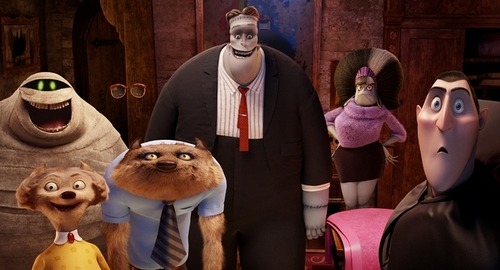
I think the overall problem with the film is that it just doesn't bring anything new to the table. The "monsters are really afraid of humans" angle has been covered several times before, most notably in Monsters, Inc. Good rule of thumb for animated films, if Pixar's done it already, it's not worth trying to do it again. Oh, but it's also the story of an over-protective father learning how to let go and let his child figure out the world on their own terms. Hmmmm... Which Pixar movie was it that covered that territory already? And Sandler's not content to just rip off other people's films. Wait until you get to the climactic scene, set on board an airplane, that's almost a little too in debt to The Wedding Singer.
I guess the real reason I dislike this film so much is how inherently lazy everything about it truly is. There was probably some original ground to cover here, but everyone seems to have avoided it like the plague, sticking to ground paved by everyone before them. There are lots of family films in the marketplace in this day and age, it's worth having something new and or original to say if you're hoping that parents are going to shell out their hard earned money to drag the whole family to the theater, and if this is as new and original as it's going to get, I'd rather stay home.
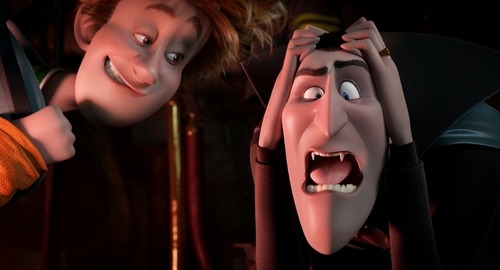
Look, I'm being awfully harsh on the film, but I spent my money on it, so I get to have my say. Characters mugging to the camera and Jokes about bodily functions have their place in films. Hell, even The Master had a fart joke in it. But when that's all you've got, it's not enough. Period. End of sentence. There's got to be more to it than that, and this film brought nothing imaginative to the equation beyond what must have been a series of "insert joke that will make an eight year old laugh here."
It's a well-animated film that's nice to look at, and thank goodness, otherwise I would've left (although my daughters would have been upset). It's just not enough to continuously stop the flow of the action to insert a horrendously auto-tuned musical number because you've run out of ideas and/or plot. There's got to be a reason to get the people into the theater, and I know that 90% of it is just getting them in there in the first place. However, I will approach anything and everything from this studio and these filmmakers with kid gloves from here on out, because they did everything in their power to earn that. To paraphrase Dean Wormer from Animal House, "cheap, lazy and stupid is no way to go through life, son."
GO Rating: 0.5/5

[Photos via BoxOfficeMojo]
